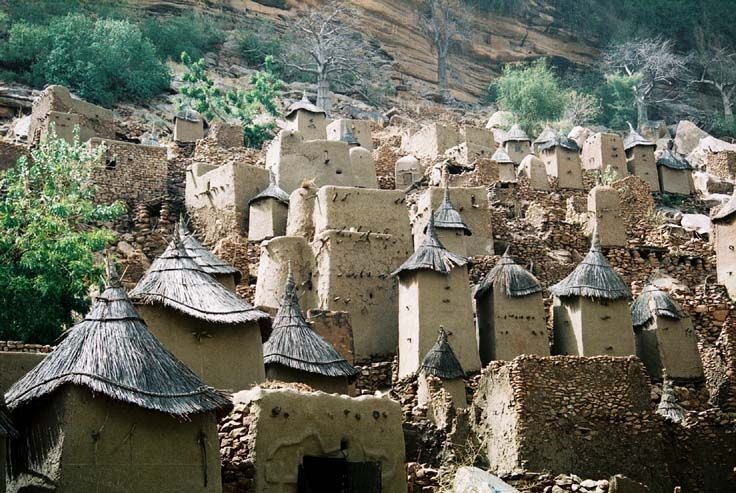
Photo Credit: Atlanta Blackster
MALI: Dogon Country is the name used for the region of south-central Mali renowned for its secluded villages embedded on cliffs that are up to 500m tall which were inscribed as a UNESCO World Heritage Site in 1989.
The Dogon people have been living in this area for more than a thousand years following their refusal to be forcefully converted into Islam. This then led to the development of their religion, culture, and language.
The villages, perched on the cliffs of the Bandiagara escarpment showcases the architectural ingenuity of the Dogon people. These villages are typically composed of mud-brick houses, narrow alleyways and communal gathering spaces.
Dogon people are mainly an agriculturists with few craftsmen, largely metalworkers and leatherworkers. They have no centralized system of government but live in villages composed of patrilineages and extended families whose head is the senior male descendant of the common ancestor.


